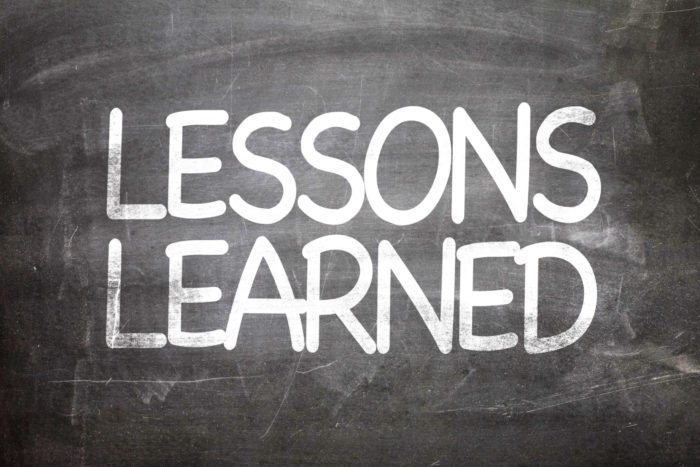Childhood Emotional Neglect: What Your Parents Didn’t Say and Why It Matters

Childhood Emotional Neglect (CEN) is, by definition, nothing. How can nothing be something? How can nothing be a source of enduring pain and struggle? It seems unfathomable… until you see it day after day, in your office, as I have.
What do you wish your parents had said to you? Answers Posted On Facebook
Anything much. I don’t remember being talked to at all.
You have a right to your feelings, & the right to be heard & have them considered.
We believe in you.
How do you feel? What do you want? I will help you figure life out.
I love you. You are enough. I am proud of you.
There is nothing wrong with who you are.
Are you okay?
Do you want to talk about it? You look upset.
My love for you is unconditional.
There’s nothing in this world you cannot do. So stand up, shoulders back and go out there.
I’m sorry…
I wish they meant what they said.
That I was beautiful.
You can make mistakes and I will not think any less of you. You don’t have to be perfect.
Don’t be scared. It will be alright. Things will go wrong but it doesn’t matter. We’re all the same.
It’s OK to get angry/sad/mad.
Anything that wasn’t emotional abuse ……anything that didn’t leave me feeling worthless or that I had to please them for their attention.
———————————————————————————————————————————–
Recently I posted this blog’s title question on my Facebook Page. I got many thoughtful and heartfelt responses. The quotes above are a direct sampling of them.
Why did I ask this particular question? Because in my experience as a psychologist, I have found that people are naturally far more able to think about and describe what they wish their parents had not done or said to them than what they wish their parents had done or said to them.
This distinction is also a fair description of the difference between abuse and neglect. Abuse is an action, whereas neglect is a lack of action. Our brains record and remember things that happened (like abuse), whereas our brains do not notice things that don’t happen (neglect).
Which seems worse: a parent who screams and yells at a child and calls him names? Or a parent who simply does not talk to or engage the child at all?
I have seen that failure to engage, notice, and affirm a child does just as much damage to him or her as abuse, but the effects are different. An abused child will feel “hit,” verbally, physically, or emotionally; whereas a neglected child will feel simply “at sea,” invalid and alone.
I see Childhood Emotional Neglect (CEN) as one of the greatest potential threats to future generations. It is difficult to stop something that is invisible, intangible, unnoticeable, and unmemorable.
The subtlety of CEN gives it extra power. Many adults who grew up with an absence of emotionally attentive observations and questions like those listed above do not recognize the harm that this absence has done to them. And even when they recognize it, they can’t quite believe or grasp it.
People with CEN vastly underestimate its effects on them. CEN is, by definition, nothing. How can nothing be something? How can nothing be a source of enduring pain and struggle? It seems unfathomable… until you see it day after day, in your office, as I have.
A few reviewers of my book, Running on Empty, have said that the recovery chapters are unrealistic because they are about helping readers give themselves the attention, validation, and structure that they did not get in childhood. However, I know that people with CEN can make tremendous progress toward this. It requires effort and motivation, but it is very much possible. I know this because I have watched it happen many times.
All of the emotionally neglected people who offered those many requests in response to my question hold a secret key. A key to fulfilling their own needs; a key that offers healing, solace, and fuel.
How to Give Yourself What You Never Got
- If your parents didn’t talk to you, then talk more to yourself. Put yourself in situations where you will be required to talk.
- If your parents never told you that you were good enough, then you must resolve this question for yourself. Are you good enough? Listen to your answer, and trust it.
- If your parents never meant what they said, then you must pledge to yourself to always mean what you say. Always speak the truth, no matter how difficult it may be.
- If your parents never asked you if you were okay, then you must ask yourself this often, and listen carefully to your answer.
- If your parents didn’t notice when you were upset, then you must try to always notice what you are feeling and why.
And so on and so on, the answer lies within you. The beginning is self-awareness.
Because once you realize what you didn’t get, this tells you what you need. And once you know what you need, I hope you will also realize that you can get it. I hope that you will fight for what you didn’t get. Ask for help and accept support because you deserve it. And then you will have it to give to your own children.
To learn much more about how CEN affects all areas of your life sign up for the CEN Breakthrough Video Series. It’s free!
To learn more about how to give yourself and your children what you never got yourself, see the books, Running On Empty: Overcome Your Childhood Emotional Neglect and Running On Empty No More: Transform Your Relationships.
A version of this article was first published on Psychcentral.com. It has been republished here with the permission of Psychcentral.
10 Question Quiz: Do You Need Better Boundaries With Your Emotionally Neglectful Parents?

It is definitely true that parenting is an incredibly complex job. We can all see that the huge majority of parents are honestly working hard to offer the very best they possibly can to their children.
As much empathy as I have for parents, being one myself, today I will be talking with all who are on the other side of the fence: those of you who are grown up now and are feeling that your relationship with your parents is a problem in your life.
There are indeed an infinite amount of ways that a parent/child relationship can go wrong. Many are subtle or confusing and can leave all parties feeling burdened or hurt.
Especially if you know that your parents love you, you may end up baffled about your relationship with them, and wondering what is wrong.
6 Different Ways You May Feel About Your Parents
- You may feel guilty for not wanting to spend more time with them
- You may feel very loving toward them one minute, and angry the next
- You may look forward to seeing them, and then feel let down or disappointed when you’re actually with them
- You may find yourself snapping at them and confused about why you’re doing it
- You may get physically ill when you see them
- You may harbor anger at them, and feel there’s no reason for it
How does this happen? Why does this relationship have to be so complicated? Why can’t we just love our parents unconditionally?
Of course, there can be endless different explanations for any of these problems. But for most people, the answer lies somewhere in the area of what psychologists call individuation.
Individuation: The natural, healthy process of the child becoming increasingly separate from the parent by developing his or her own personality, interests, and life apart from the parent.
Individuation usually starts around age 13 but can be as early as 11 or as late as 16. Behaviors we think of as “teenage rebellion” are actually attempts to separate. Talking back, breaking rules, disagreeing, refusing to spend time with the family; all are ways of saying, and feeling, “I’m me, and I make my own decisions.”
Individuation is indeed a delicate process, and it doesn’t always go smoothly. When it doesn’t, and also goes unresolved, it can create a stressful or painful relationship between parent and adult child.
4 Ways Individuation Can Go Awry
- The parent does not know that the child’s individuation is natural and healthy, and discourages it. This parent may feel hurt by the child’s separation, or even be angered by it, making the child feel guilty for developing normally.
- The parent wants the child to stay close to take care of the parent’s needs, so actively discourages the child from separating.
- The parent is uncomfortable with the child’s needs, and so encourages the child to be excessively independent starting from an early age.
- The child is held back from healthy individuation by some conflict or issue of his or her own, like anxiety, depression, a physical or medical ailment, or guilt.
When your adolescence gets off track in any of these ways, a price is paid by both you and your parents. Much later, when you’re trying to live your adult life, you may sadly find yourself feeling burdened, pained, or held back by your parents. On top of that, you might feel guilty for feeling that way.
So now the big question. How do you know when you need some distance from your parents?
10 Questions About Your Boundaries With Your Parents
- Do you feel held back from growing, developing, or moving forward in your life by your parents?
- Is your relationship with your parents negatively affecting how you parent your own children?
- Are you afraid of surpassing your parents? Would they be hurt or upset if you become more successful in life than they?
- Are you plagued with guilt when it comes to your parents?
- Are your parents manipulating you in any way?
- Are their needs coming before your own (the exception is if they are elderly or ill)?
- Were/are your parents abusive to you in any way, however subtle?
- Have you tried to talk with them and solve things, to no avail?
- Do you feel that your parents don’t really know you?
- Do your parents stir up trouble in your life?
If you answered yes to one or more of these questions, and you also feel burdened by your relationship with your parents, it may be a sign that you need some distance to maximize your own personal growth and health.
Yes, parenting truly is the hardest job in the world. But parents are meant to launch you, not limit you. If your individuation didn’t happen fully through your adolescence, you may need to work at separating from your parents now in order to have the healthy, strong, independent life that you are meant to live.
So what does distancing mean when it comes to parents? It doesn’t mean moving farther away. It doesn’t mean being less kind or loving toward them. It doesn’t necessarily mean doing anything drastically different. In fact, distance can be achieved by changing yourself and your own internal response to what happens between you.
Watch for a future article sharing some of the basics of how to make those changes for yourself. In the meantime, you can learn much, much more about exactly how to do this in the book, Running On Empty No More: Transform Your Relationships.
Guilt is, for many, built into the adult separation process, unfortunately. So separating from your parents may be no less painful now, as an adult, than it was when you were an adolescent. But the good news is, you are grown up. You’re developed. You’re stronger. Now you can better understand what’s wrong.
To learn more about the parent/child relationship and how it can go wrong emotionally, see the book, Running on Empty: Overcome Your Childhood Emotional Neglect.
A version of this article was first published on Psychcentral.com. It has been revised and reproduced here with the permission of psychcentral.
5 Challenges of Valentine’s Day and How to Overcome Them

Is Valentine’s Day just one big commercial created by the card companies? Actually, no, it is not. It’s a holiday that is rooted in ancient history. Valentine’s Day is thought to originate from the ancient Roman festival of Lupercalia that was held each year in the middle of February. It was a happy occasion which, in addition to celebrating spring, also included fertility rites and a lottery that paired men and women together based on the drawing of names.
Sounds fun, right?
Society has changed since ancient times, and Valentine’s Day has transitioned through the centuries into something quite different. It’s supposed to be a happy celebration of love and, for many, it is. But it also poses unique challenges to people married and single, dating or not dating, wishing for a relationship, or happy alone.
Let’s start by taking a look at the various challenges of Valentine’s Day. You may identify one, several, or even all as applying to you. Either way, no worries. There are answers!
5 Ways You May Be Challenged By Valentine’s Day
- You are uncomfortable with emotions. Valentine’s Day is, without a doubt, an emotional holiday. With its emphasis on love and relationships, it practically commands you to have, share, and express feelings with your significant other. But not everyone is comfortable with emotions. If you grew up in an emotionally inexpressive, emotionally repressed, or emotionally neglectful family, you may be particularly uncomfortable with an emotion-based holiday like this.
- You are set up with high expectations. This is how V Day is like every other holiday. As a designated day to celebrate your relationship, V Day sets you up with high expectations to feel loved, cared for, and valued by your partner. Since these feelings cannot be summoned on demand, this can be a setup for disappointment.
- You are in a struggling relationship or are looking for a relationship. As a holiday that’s focused exclusively on couples, Valentine’s Day makes you hyper-aware of your relationship status. That’s why for every person who’s looking forward to Valentine’s as a way to celebrate their love, there are several who are dreading the holiday because of the way it makes them feel. You may wish you were in a relationship, or you may be in a struggling marriage. How do you celebrate a non-existent or unhappy relationship?
- You are content being single. Being in a couple is not a requirement for happiness. Many people purposely and comfortably choose not to be in a relationship. If this is you, you may find yourself receiving sympathy you don’t need or want as a result of this holiday. That can be very uncomfortable.
- The holiday brings up grief over past or current losses. Valentine’s Day has a way of reminding you of everyone you have loved. If you have lost a past loved one via death, break-up, or divorce, or are in the process of transition in your life, you may experience some fresh grief on this day.
You Are Not Alone
All of these challenges can affect anyone, of course. But they are especially problematic for you if you did not receive enough emotional validation and emotional connection from your parents during your childhood or, in other words, if you have Childhood Emotional Neglect (CEN).
If you struggle with any or all of these challenges this Valentine’s Day, I want to first tell you sincerely that you are not alone!
And it is surely not a bad thing to be challenged. Every challenge you encounter in your life is actually an opportunity for growth. And this holiday is no exception. I’m going to prepare you for Valentine’s Day by helping you use it as a way to flourish and progress forward in your life.
3 Ways to Prepare For the Challenges of Valentine’s Day

- Let yourself feel whatever you feel this holiday. Your emotions emanate from your central nervous system so you cannot — and do not — choose what you feel. It’s vital to pay attention to what you are feeling in your relationship. Your feelings will guide you; they’ll tell you when you need to reach out to your partner, give more, speak up for yourself, set limits, or protect yourself. Feelings can be painful or positive but, in the end, they are only feelings. Feelings do not follow a moral code, they are not always “right,” they don’t always make sense, and you can feel two opposite things at once. You are responsible for knowing and managing your feelings, but not for having them. You can learn much more about how emotions work both in and out of relationships in the two Running On Empty books.
- Don’t get caught up in the trappings of the holiday. If you are celebrating with your partner, be thoughtful about what you feel toward them. Whether you offer a card, a gift, or a plan, focus less on impressing your person and more on communicating your true feelings to them. That is what this holiday is actually about.
- Allow yourself to acknowledge and grieve what you have lost. Grief has a way of coming and going. It is easily touched off by holidays such as this. When you try to avoid your grief, it only makes it stronger. The best way to deal with your grief is to allow yourself to feel it. Set aside a specific time in your day to sit alone and think about what you have lost. Feel your feelings, and consider what you’ve lost; then engage in something healthy and soothing. Allow yourself to move forward with your day.
The Takeaway
Whether you are happily single or actively seeking your person, use this day as an appreciation day for yourself. Consider the gifts you were born with and the qualities you are able to offer others. Think about what you like, what makes you happy, and what you want and need. Consider who the important people in your life are, and allow yourself to feel grateful for them. This day is your day to love and appreciate yourself.
Overall, keep this holiday in perspective. Try not to expect your partner to make you feel a certain way and, conversely, try not to expect to make your partner feel any particular way. Instead, keep your focus on simply having an enjoyable time. And keep in mind that it’s no one else’s role to make you happy. We are each responsible for our own happiness.
Relationships have extraordinary power to bring us happiness and fulfillment, yes. But they cannot be the primary source of our feelings about ourselves or our lives. Ultimately, we are each responsible for our own feelings and for making sure our own needs are met. Also, it’s hard for others to love us when we don’t yet love ourselves.
So, paradoxically, this holiday about couples is best spent focused on the very most important person in your life: yourself.
Childhood Emotional Neglect is invisible and hard to remember so it can be difficult to know if you have it. If you struggle to understand and express feelings in your relationships, Take the Emotional Neglect Test. It’s free.
To learn much more about getting comfortable having and sharing feelings in your relationships see the book Running On Empty No More: Transform Your Relationships.
How to Know When You Are Having a Feeling

How do you know when you are having a feeling?
As the pioneer of the concept and full theory of CEN — or Childhood Emotional Neglect — I receive hundreds of questions every week about CEN, what it means, how it works, its effects, and how to heal.
Many readers of my books and blogs have very personal, thoughtful observations and questions to share. In fact, I have learned quite a lot from receiving, reading, and answering them.
Of all those many questions there is one that I receive over and over and over again. And then again. And the next day, there it is again. I get it so often because it’s a key piece of the cause of CEN and a key building block for CEN healing too. In fact, it would be hard to overstate its importance.
How do you know when you are having a feeling?
My answer to this question is not quite as simple as most would like. It’s complicated by the fact that every human being is different.
How Do You Know When You Are Having A Feeling? 3 Signs
Note: Any one of these signs is an alert that you are having a feeling. You do not need to have all three.
- Physical sensation: Emotions are literally physical sensations that reside in your body. If you know that you are someone who is unaware of your feelings it may help to pay more attention to your body, paying special attention to the sensations that may come and go. Emotions are often felt in the belly or chest or throat but they can also be in your arms, legs, hands, head, or any other part of your body. Watch for a physical sensation and when one happens, stop and take note.
- Physical pain or symptoms: Emotions that are not acknowledged or attended do not go away. They hang around under the surface of your life and can cause physical symptoms like headaches, backaches, fatigue, restlessness, jaw clenching, chest tightness, or an almost endless list of other physical symptoms. In fact, research shows that, for example, repressed anger has been linked to heart attacks. When you notice a physical symptom, stop and ask yourself if you might be repressing an emotion.
- Surprised or confused by your own behavior: Our actions are driven by our feelings. When you are aware of what you’re feeling, you have the opportunity to use your brain to consider the feeling you are having and plan your actions. This puts your behavior under your control. If you are surprised or confused by something you do, consider the possibility that you are having a feeling of which you are unaware. Pause to think about this.
What To Do If You Notice One of the 3 Signs of Having a Feeling
The 3 signs above will, hopefully, alert you to the possibility that you may be feeling something and that is an excellent start! But the signs will not tell you what you are feeling or what it means. To help you with that, I created an exercise to guide you. I first shared it in my book, Running On Empty: Overcome Your Childhood Emotional Neglect. It’s called The Identifying & Naming Exercise.
The Identifying and Naming Exercise
Step 1: Close your eyes. Picture a blank screen that takes over your mind, banishing all thoughts. Focus all of your attention on the screen, turning your attention inward.
Step 2: Ask yourself the question: “What am I feeling right now?”
Step 3: Focus on your internal experience. Be aware of any thoughts that might pop into your head, and erase them quickly. Keep your focus on: “What am I feeling right now?”
Step 4: Try to identify feeling words to express it. You may need more than one word.
Step 5: If you’re having difficulty identifying any feelings, skim through the Feeling Word List in the Resources at the end of the Running On Empty book, and see if one or more words jump out at you.
Step 6: Once a word jumps out at you, say it out loud. “I feel ______.” Does it sound right when you say it? Does it feel right when you say it? Does it feel partially right but you need more words to describe it?
Step 7: When a feeling word seems like it may be accurate, you are ready to move on to the next step, which is trying to figure out why you are feeling that.
We will save Step 7 for another day because right now we’re trying to help you know when you’re feeling something. Learning the other feeling skills is easier once you have become more skilled at this first one.
The Takeaway
Your emotions are literally physical sensations that reside in your body. When you fail to notice and acknowledge a feeling, it can become a physical problem for you or it can make you act in ways that may be undesirable or regrettable or simply confusing.
Learning how to identify when you are having a feeling is a vital skill for living a happy and healthy life. When you grow up in an emotionally neglectful family you sadly do not have the opportunity to learn it. In fact, you learn the opposite: how to ignore, deny, belittle, and block off your feelings.
Now, as the adult you are, you have the power to make some new choices for yourself. You can choose to focus, choose to learn, and choose to feel.
You can choose to start valuing your feelings and using them to know and understand yourself better. You can start down the path of healing your Childhood Emotional Neglect. It’s never too early or too late to choose yourself.
To learn more about Childhood Emotional Neglect, see my first book Running on Empty.
How Childhood Emotional Neglect Works and Why It Transfers Through Generations

And how it affects your day-to-day life now.
Emotional Neglect: A parent’s failure to respond sufficiently to your emotional needs. In other words, Emotional Neglect is something that failed to happen in your childhood.
To demonstrate why emotional neglect as a child is so invisible, let’s do an experiment.
First, I’d like you to think of an event that happened yesterday. It can be anything, big or small, just something that happened.
Second, I’d like you to think of something that didn’t happen yesterday.
My guess is that the second request was quite a bit more difficult than the first. That’s because our brains record events as memories. Things that fail to happen go unnoticed, unseen, and unremembered.
We have long been aware of the fact that what happens to us in childhood has a tremendous effect on who we become as adults. But the opposite is also true. What doesn’t happen for us in childhood has an equal or greater effect.
Remember that Emotional Neglect is a parent’s failure to respond enough to a child’s emotional needs. Because it’s a parent’s failure to act, rather than a parent’s act; just like we saw in our little experiment, it goes unseen, unnoticed, and unremembered.
Emotional Neglect comes in an infinite variety of forms. It can be incredibly subtle, such that 50 people could be watching it not happen, and be completely unaware.
An Example of Emotional Neglect in Action:
Joey’s friends gang up on him on the soccer field one day. So Joey comes home from school feeling sad. Joey’s parents don’t notice his sadness. Neither says, “Joey are you OK?” or “Did anything happen at school today?” No one seems to notice that anything is wrong.
This probably seems like nothing. Indeed, it happens in every home, and it generally is nothing.
So how could an incident like this damage a child and leave scars that remain into his adulthood? The answer lies in the natural, developmental needs of children.
In order for a child to grow up with a complete and solid sense of himself, who he is, and what he’s capable of, he (or she) must receive enough awareness, understanding, and acceptance of his emotions from his parents. If there is a shortage from the parents in any one of these areas, the child will grow up feeling incomplete and lacking some of the skills and self-knowledge and self-care that are necessary to fully thrive in this world.
And now back to our boy Joey, who came home from school feeling sad. If this happens on occasion, it’s no problem. If it happens with enough frequency and depth — that what Joey feels is not noticed, responded to or validated by his parents — Joey will grow up with a hole in his emotional development. He may deeply believe that his feelings are irrelevant, unimportant, or even shameful or unacceptable.
As a psychologist, I have seen time and time again that these subtle parental failures in childhood leave the adult with a feeling of being incomplete, empty, unfulfilled, or even questioning his own purpose and value.
This becomes even more difficult when the emotionally neglected adult looks back to his childhood for an explanation for why he feels this way. I have heard many emotionally neglected people say, “I had a great childhood. I wasn’t mistreated or abused. My parents loved me and provided me with a nice home, clothing, and food. If I’m not happy, it’s my own fault. I have no excuse.”
These people can’t remember what didn’t happen in their childhoods. So as adults, they blame themselves for whatever is wrong in their lives. They have no memory of what went wrong for them, so they have no way of seeing it or overcoming it, to make their lives happier.
In addition to self-blame, another unfortunate aspect of emotional neglect as a child is that it’s self-propagating. Emotionally neglected children grow up with a blind spot when it comes to emotions, their own as well as those of others.
When emotionally neglected children become parents themselves, they’re unaware of the emotions of their own children, and they raise their children to have the same blind spot. And so on and so on and so on, through generation after generation.
My goal is to make people aware of this subtle but powerful factor. To give everyone the ability to look back and see the invisible; have the words to talk about it, and an opportunity to correct it and stop blaming themselves.
I want to make the term Emotional Neglect a household term so that parents will know how important it is to respond sufficiently to their children’s emotional needs and understand how to do it.
I want to stop this insidious force from sapping peoples’ happiness and connection to others throughout their lives and to stop the transfer of Emotional Neglect from one generation to another to another. I want to give answers to those many people who are living their lives feeling disconnected and unfulfilled, and wondering what is wrong with them.
To learn more about Childhood Emotional Neglect, how it happens and how to recover from it, see the books, Running on Empty: Overcome Your Childhood Emotional Neglect and Running On Empty No More: Transform Your Relationships With Your Partner, Your Parents & Your Children. Since CEN is so subtle and invisible, it can be hard to know if you have it. Take the Childhood Emotional Neglect Test.
A version of this article first appeared on YourTango.com. It has been reprinted here with the permission of YourTango.
The 3 Unique Challenges of the Parentified Child in Adulthood

Marc
Marc’s parents divorced when Marc was seven. From that point on, he was raised by his mother, with occasional “check-ins” by his father. Marc’s mother owned and managed a deli, and had to work long hours to support Marc and his two younger siblings. Marc hurried home from school to pick up his siblings at the bus stop, made dinner for them, and often was responsible for getting them to bed.
Alise
When Alise was nine, her mother was diagnosed with multiple sclerosis. As Alise grew into middle school and high school, her mother was at home, getting sicker and sicker. The more disabled her mother got, the more Alise picked up the slack at home. She cared for her mother, did the grocery shopping, and even fought with insurance companies over her mother’s medical needs.
There are many ways in which the child can become what therapists call, “parentified.” Addicted, depressed, financially pressured, physically ill, or bereaved parents are some examples.
Believe it or not, there is a silver lining to being parentified. Marc, for example, grew up to be a very responsible man. He worked his own way through college because he was determined to have a career. He didn’t want to struggle financially, as his mother did. Marc is now a giving, caring husband and father. He knows how to parent because he did it as a child.
Like Marc, Alise is also a very responsible adult. She’s a research scientist in the medical field. Alise is driven to find cures for incurable diseases, and she works long hours by choice to meet her passionate goal. She is a loving mother and wife. Alise is excellent at giving and care-taking, for her family and for the world. Because her childhood prepared her to be.
Yes, there are far worse things that one’s childhood can prepare her to be. In many ways, Marc and Alise are in an excellent position to live happy, productive lives.
However, there is a serious downside to being parentified.
The 3 Unique Challenges of the Parentified Child
- Excessive self-sacrifice: If you grew up caring for others, you may not have learned how to care properly for yourself. You may not have learned something that everyone else knows: that your first and primary responsibility in your life is your own health and happiness. Unless you take care of yourself first, you will be depleted by your life.
- Regret: When the child becomes the parent, she grows up far too soon. This leaves you with a feeling of sadness and loss when you look back on your childhood. “I never got to be a kid,” you lament. You hear stories of other peoples’ childhoods, and you feel envious and sad. You are sentenced to a lifetime of regret.
- Co-Dependence: When you are programmed as a caretaker, it becomes difficult to step out of the caretaker role. This, in some ways, is a set-up. You are more likely to form friendships with or marry people who need care, and stay with them far too long. At your own expense.
Marc
Marc learned many lessons from his childhood. He works long hours and supports his family well. Yet as those around Marc thrive and grow, Marc does not. His wife, and the mother of his children, is an alcoholic. So while she repeatedly drinks, passes out, and drops the ball in caring for the children, Marc quietly picks up the slack. He tries and tries to help her get sober. He lives under a black cloud, and cannot see that he has simply re-created his childhood.
Alise
Alise is busy saving the world, and this is her blessing and her curse. She enjoys success and the love of her family, yet she grows more and more tired every day. Alise learned everything she needs to thrive in her childhood, except for one key thing. She did not learn that her needs are important. In fact, she didn’t learn that she even has needs. Alise lives under the same cloud as Marc. Each day she wonders what joy is. Each day she longs for what’s missing in her life.
3 Steps for Marc, Alise, and You
- Put yourself first. Accept that you have needs, and pay attention to what they are. When you need healthy food, fun, rest, fresh air or alone time, take it.
- Replace the joy you missed as a child by finding it now. You didn’t get to run free through the neighborhood with your friends, or be doted on by two caring parents? Maybe you didn’t learn the feeling of emotional freedom? Learn it now. Discover what you love, and pursue it. Seek joy, and know that you’ve earned yours.
- Stop over-caring for those around you. Life is short, and you are living yours for others. This is your time to turn your powerful caring skills toward yourself.
If you were in the role of the parent as a child, your life is about to change. You are about to re-parent yourself in a way that you missed as a child. You’re going to start living as you were always meant to live and experiencing the joy, happiness, and care that you’ve always deserved.
To learn more about the parentified child as well as other forms of Childhood Emotional Neglect and how to heal from them, see the book, Running on Empty: Overcome Your Childhood Emotional Neglect and Take The Emotional Neglect Test. It’s free on this website.
A version of this article was originally published on psychcentral as When the Child Becomes the Parent. It has been reproduced here with the permission of psychcentral.
The Importance of Self-Acceptance & 4 Ways to Achieve It

Here are ten everyday habits that have been proven, in study after study, to make people happier. As you read the list, think about how often you practice each one:
- Giving: doing things for others
- Relating: connecting with people
- Exercising: taking care of your body
- Appreciating: noticing the world around
- Trying out: continuing to learn new things
- Direction: having goals to look forward to
- Resilience: finding ways to bounce back
- Emotion: taking a positive approach
- Self-acceptance: being comfortable with who you are
- Meaning: feeling part of something bigger
A charity called Action for Happiness, in collaboration with another organization, Do Something Different, surveyed 5,000 people to determine how many people practice each of these habits on a regular basis.
Interestingly, in the sample of people surveyed, they found that one of the habits that makes the most powerful contribution to happiness was practiced the least:
Self-Acceptance
Self-acceptance can be described as simply liking yourself. It requires forgiving yourself for your own mistakes and having compassion for yourself. Knowing who you are, your own strengths and weakness, and feeling deeply that, after it’s all added up, you are good enough.
In my 20 years of practicing psychology, two things have always been very clear to me. First, self-acceptance, or self-love, is not only a primary building block for happiness, but it’s also a requirement. And second, the huge majority of people who don’t have self-acceptance lack it for exactly one reason: they don’t know themselves.
And you can’t like and fully accept someone who you do not know.
In my experience, I’ve seen that the majority of people actually would like themselves, if they could actually see the full picture of who they are. But if your self-view is distorted, shallow or missing big pieces, then you are missing not only self-knowledge but also the opportunity for self-acceptance, the foundation for happiness.
Self-knowledge starts in childhood. Lucky children who are raised by parents who truly see them, notice their personalities, their preferences, their emotions, their needs, strengths, and weaknesses, learn who they are through their parents’ reactions to them. When this lucky child looks into his parents’ eyes, he sees his true self reflected there. Because his parent sees him and understands him realistically, he gets a realistic view of himself, and a true understanding of who he is.
Unfortunately, though, the world is full of parents who are too busy, too depressed, too addicted, too self-absorbed, too overwhelmed or too achievement-focused to actually see their children in this very real, truly meaningful way. Many of these parents are none of the above, but they simply are unaware of the emotions of themselves and their children, and end up emotionally neglecting them for that reason. Whatever the cause, these are families of Childhood Emotional Neglect or CEN.
Many emotionally neglectful parents love their children and are good parents in many ways. But because they miss the “feeling” part of parenting, they simply lack the ability to fully see and know their child. Often, they are not able to do so because their own parents did not see or know them either. Typically, it’s no one’s fault, it just is.
Unfortunately, however, no matter the impediment on the part of the parent, the effect upon the child is the same. He grows up not seeing himself, not knowing himself. So how can he truly like himself? And how can he find true happiness?
3 Questions to Ask Yourself
- Do you feel that you truly know yourself, inside and out?
- Do you like who you are?
- Do you love yourself?
If you’re not sure, or if you answered “No” to any of those three questions, it’s okay. Because this is one impediment to your happiness on which you can make great progress yourself.
And the answer is far simpler than you might think.
The 4 Goals to Reach Self-Acceptance
1. Pay attention to yourself.
- Your likes and dislikes
- What bothers you?
- What makes you angry?
- What is your temperament?
- What are your values?
- What are your talents?
- What are your weaknesses?
2. Identify the things you don’t like about yourself. Are there areas in which you can self-improve? If you can change it to become a better person, set a goal to improve in that area. Self-improvement is likable. And trying is likable, even when you sometimes fail.
3. Have compassion for yourself. You are human, and you have faults and weaknesses, just like every other human being. Learn from every mistake you make, and give yourself credit for trying. Accept that you cannot be perfect.
4. Pay attention to what you feel, and why. Your emotions are the most deeply personal part of who you are. Take responsibility for your feelings. Judge yourself in the big picture, not for one small mistake, weakness or lapse.
Going through life without knowing yourself does plenty of harm to your ability to enjoy life. But since that lack of self-knowledge will chronically hold you back from self-acceptance, and therefore, happiness, it’s triply important to work on the Four Goals above.
After all, you have nothing to lose. And you have self-knowledge, self-love, and happiness to gain.
To learn much more about how Childhood Emotional Neglect happens, how it affects adults and families, and how you can heal, see the books Running On Empty and Running On Empty No More.
Childhood Emotional Neglect is often invisible and unmemorable so it can be hard to know if you grew up with it. To find out Take The Emotional Neglect Test. It’s free!
A version of this article was originally posted on psychcentral.com. It has been republished here with the permission of Psychcentral.
2 Kinds of Lonely Feelings and How to Cope With Them

It was Thanksgiving, twenty-some years ago, and I was in graduate school. I decided not to go home to visit my family that year. Unexpectedly, my close friend and roommate told me that she was going to spend the holiday at her fiancé’s house in another city.
“Come with me,” she said. “It will be fun!” I knew that it would be, but somehow, I just didn’t feel like it. “No, I’ll be okay. I feel like being alone,” I assured her.
The morning of Thanksgiving, I got up in an empty house, and instantly knew I had made a mistake. The house felt empty, and so did I. I walked into the empty kitchen, and filled an empty cup with coffee. I sat down with an empty thud, and stared down at the empty table.
Thus began one of the loneliest days of my life.
Almost everyone feels lonely sometimes. It’s an unavoidable part of the human condition. Few are so surrounded by people at all times that they never feel left on their own.
But it does seem that loneliness is becoming a serious problem that threatens us all. New research from the American Psychological Association has established that far more people are living alone than was true in the past. New studies also show that loneliness can significantly harm your health, and decrease the length of your life.
This new research suggests that we should begin to pay more attention to the spread of “alone.” We need to take a closer look at “alone,” and “lonely.” What do they mean? How do they feel? Can we prevent ourselves from experiencing them?
First I would like to assert this one vital point: You needn’t be alone to be lonely. And you can easily be alone, and not be lonely. In other words, “lonely” is not a state, it’s a state of mind. Actually, it’s a feeling; a feeling that visits some folks more than others.
The 2 Kinds of Loneliness
1. The kind you feel when you are actually alone. This “alone” is situational. It happens when you acutely recognize that there are no people with you. You may feel this when, for example, you weren’t invited to a party, or you just moved and haven’t made any friends yet, or are sitting at home alone on a Saturday night. This alone is painful, and difficult to tolerate. But it goes away when people arrive.
2. The kind that’s more lonesome than being alone. You can feel this kind of loneliness anywhere, even when surrounded by people. This “lonely” can happen when you are actually alone. But it can also happen when you are in the company of people who genuinely love and care about you. This type of loneliness can follow you wherever you go, and it often does. This loneliness can come at any time, under any circumstances. In fact, it may be so woven into the fabric of your life that you feel it all the time. It’s a feeling that can become a part of your everyday experience of yourself and your life.
This kind of loneliness comes from your childhood. It comes from growing up in a household where the deepest, most personal expression of who you are, your feelings, are ignored or squelched by your parents (Childhood Emotional Neglect, or CEN).
Having your feelings ignored or discouraged while your brain is developing sends you a deeply-felt, never-understood message:
You are alone in this world.
This is one of the powerful messages of Childhood Emotional Neglect. And it does not leave you simply because you grow up. It stays there, visiting at will, and often when you least expect it.
The Solution to the Loneliest Lonely
The amazing thing about CEN is that its solution is the exact opposite of its cause.
As a child, your emotions were squelched or regarded as “nothing.” So now, you must encourage your own feelings, and make a choice to treat them as “something.”
Your walled off emotions are keeping you walled off from the people who could be occupying your heart and mind right now. Your walled off feelings represent your true self, and they have waited for you long enough.
When you begin to pay attention to them, you are paying attention to your true self. When you listen to them and take them seriously, you are listening to yourself, and taking yourself seriously.
Once you become aware of your CEN, and how it’s affecting you, you can begin to use your emotions in a way that connects you to people. It can literally change the way you feel inside, and the way you live your life.
You can begin by putting words to all of the emotions that go into “lonely” for you. Here is what I felt that day, some 20-odd years ago:
Sad
Singular
Rejected
Empty
Lost
Isolated
Bereft
Unloved
Uncared-for
On my own
On the outside
I now understand that I wasn’t rejected by others that day. No. I was rejecting myself. I now know that taking down the wall that your child self built is one of the most important things you can do in your life. And beginning to use your emotions to connect with others in a new way is the icing on the cake.
It does take work and perseverance, but it will change you for the better in significant ways. You can defeat your Type 2 Lonely. You can take this on, and win, I assure you.
On your mark. Get set. Go.
Childhood Emotional Neglect is often invisible, so it can be hard to know if you have it. To learn more, Take The Childhood Emotional Neglect Test. It’s free.
To learn more about how to use your emotions in a new way to connect with the central people in your life, see my new book, Running on Empty No More: Transform Your Relationships With Your Partner, Your Parents & Your Children.
A version of this article was initially posted on psychcentral.com. It has been reproduced here with the permission of psychcentral.
The Painful Education of the Emotionally Neglected Child: 10 Harmful Lessons Learned

Growing up in an emotionally neglectful household takes its toll on you.
When, as a child, no one notices enough what you are feeling or when you need emotional support, you receive covert messages that are never stated outright, but which will nevertheless guide your life going forward.
Silent, unintended, usually invisible, these messages take root early and well. As you go through adolescence, they undermine the self-confidence and self-knowledge you should be gathering.
As you grow into adulthood, they prevent you from making the choices that are right for you. As you form relationships and fall in love, they prevent you from valuing yourself. As you have children and raise them, they weigh you down and leave you feeling mystified about what you are missing and why.
The only way to reduce their power over you is to realize the signs you were emotionally neglected as a child and understand they are there and how you got them. And to make a conscious choice to stop letting them hold you back and push you down.
10 Painful Lessons Childhood Emotional Neglect Teaches You
1. It’s not good to be too happy or too sad.
As a child, you naturally had intense feelings, as this is how all children are wired. Exuberant one moment, intensely frustrated the next, you needed someone to teach you how to understand and manage your emotions.
But what you got instead was a covert message that your emotions were excessive. What you learned was to dampen your feelings, not the skills you needed to manage them.
2. You are overly sensitive.
As a child, you naturally felt upset when things upset you. You naturally felt angry when you were hurt. What you needed was to have your upset feelings soothed by a loving parent so that you could learn how to soothe yourself.
But what you got was a message that your feelings were a weakness. What you learned was to judge yourself for having them.
3. Your needs and preferences are irrelevant.
When no one asked you enough, you learned instead that you don’t.
4. Talking about a problem will unnecessarily burden other people.
Growing up, you had problems with school, with siblings and with friends. What you needed was to know that you could talk to a parent.
Instead, you knew that they, for whatever reason, could not handle it. What you learned was that others couldn’t handle your problems, and so you’d best keep it to yourself.
5. Crying is a weakness.
All humans cry, and for a reason. Crying is a way to release and process your emotions. As a child, you cried sometimes (maybe often). What you needed was for this to be okay.
Instead, your family didn’t know that crying has a purpose, so they ignored your tears or shamed you for having them. Perhaps they never showed tears themselves. You learned that crying is negative and should be avoided, one of the biggest signs you were neglected as a child.
6. Others will judge you for showing your feelings.
Were you judged for showing feelings in your childhood home? This powerful message has been carried forth with you. “Hide your emotions from others” is the message, “or others will think less of you.” Or, worse, they will use your feelings against you.
7. Anger is a negative emotion and should be avoided.
As a child, of course you often felt angry, as this feeling is a natural part of life. As a child, what you needed was help to name, understand and manage your anger.
Perhaps instead your anger was squelched or overwhelmed by another’s. Maybe you were punished for showing it. What you learned was that anger is bad and that you should suppress it.
8. Relying on another is setting yourself up for disappointment.
Children need help, period. So do adolescents and adults. As a child, you needed support, direction, suggestions, and assistance. But you could see that your parents were not up to that.
What you learned was that it is best not to ask for help in general because you are setting yourself up for a letdown.
9. Others are not interested in what you have to say.
What you learned is that your questions and words are not valuable and that you should keep them to yourself.
10. You are alone in the world.
As a child, you needed to feel that an adult had your back; that no matter what happened, there was support and help for you. Instead, when you needed something you discovered that your adult(s) were busy, overwhelmed or not aware. What you learned was that you were all alone.
The Truth
These lessons all seem so real and so true when you grow up receiving them in such a subliminal, global way. But do not forget that they are merely lessons of your family, not truths. The fact that you learned them does not make them right.
The truth is…
Strong feelings connect us to ourselves and each other, and being able to have them is a sign of health and strength.
Knowing your own needs and preferences and expressing them is a key to living a happy, fulfilled life.
Talking about your problems helps you solve them.
Crying is a healthy way of coping.
Letting others see your feelings helps them know you better.
Anger is an important message from your body that empowers you.
Mutual dependence is a form of teamwork that makes you stronger.
What you have to say is important, and you should say it.
You are human. You are connected, you are important.
You are not, in fact, by any stretch, alone.
To learn more about Childhood Emotional Neglect, sign up to watch my CEN Breakthrough Video Series on YouTube!
Since CEN is so subliminal and unmemorable, it can be hard to know if you have it. To find out if CEN may be getting in the way of your happiness, health, and well-being, Sign Up to Take the Childhood Emotional Neglect Questionnaire. It’s free.
A version of this article originally appeared on YourTango. It has been reproduced here with the permission of YourTango.
5 Ways Childhood Emotional Neglect Makes You Feel Unloved as an Adult

Here is a fact that may surprise you. When you grow up in a family that ignores, devalues, or eclipses your feelings, it damages your ability to feel loved as an adult.
Hard to believe, I know, but it is true. I have seen it over and over and over again in my therapy office as I work with folks who grew up in emotionally neglectful families.
I see good, loving people with a lot to offer and much about them to love, who are incapable of fully accepting and experiencing the love that naturally comes their way.
Childhood Emotional Neglect is, in fact, the silent killer of love. It undermines the feeling of love in a family in myriad invisible but powerful ways. It raises children who are emotionally restrained and disconnected from themselves and held back from becoming who they are meant to be.
Growing up with your feelings ignored requires you as a young child to develop some special skills. You must learn how to hide your emotions, the deepest, most personal, biological expression of who you are, from your family.
Pretending you don’t have feelings is like pretending you have no right arm. To make them invisible, you must make sure you do not have them. And this comes at a great cost to you.
So perfectly lovable people walk the earth feeling unloved and people drag their CEN spouses to couples therapy because they feel shut out. And none of it is okay.
5 Ways Childhood Emotional Neglect (CEN) Makes it Hard to Feel Loved as an Adult
You didn’t experience enough deep and personalized love as a child.
All children have a basic need to feel seen, known, and loved for who they really are. In an emotionally neglectful family, living under the “hold your feelings back” mandate, you are forced to hide this key part of yourself. How can you feel a depth of meaningful love from your family when the deepest, most meaningful part of you is never seen? So you may grow up knowing that your parents love you, but not feeling truly loved. Since the love we receive as children sets up our expectations for love as adults, you are now set up with a lowered ability to absorb and feel love. Having experienced a watered-down version of love from the people who were supposed to love you the most, it is all you know.
You are walled off from love.
As a child, you had to harden yourself against your own natural need to feel loved. Above, I said: “All children have a basic need to feel seen, known, and loved for who they really are.” All children also need emotional validation and nurturance from their parents. As a child, you naturally looked to your parents, over and over again, for those things. And, as a child, over and over again, you were disappointed. Eventually, you learned that there was no water in the well and stopped seeking it. You walled yourself off from your need for validation and love. Where is your wall now? You still have it. And it is blocking you off from the genuine love coming your way.
You don’t trust feelings in general, and that includes the feeling of love.
When your parents discouraged your emotions, they inadvertently taught you some false lessons about emotions. They taught you that emotions, in general, are useless burdens that are best avoided. Now, as an adult, it’s difficult for you to feel that feelings, including love, have value. Some part of you automatically rejects the love that comes your way.
Disconnected from your emotions, it’s hard to feel your feelings, in general.
Your solution as a child was to wall off your feelings as best you could. This is the reason so many adults who grew up with CEN experience a sense of emptiness or numbness: their feelings are still blocked off. When it comes to our feelings, we cannot pick and choose. Unfortunately, out the door goes your anger, happiness, joy, and pain, and along with it goes your love. All of these feelings are sitting on the other side of your wall waiting for you to accept and acknowledge them.
Fear of vulnerability.
To love is to be vulnerable, there is no way around it. When you don’t quite trust feelings in general and you are not accustomed to being seen, validated, and known, love can feel more like a challenge than a gift. It’s scary. You may hold back parts of yourself, fearing that if people see the real you, they will leave. Perhaps you see rejection lurking around every corner. Perhaps you are afraid to initiate friendships or activities because you fear that doing so may be burdening the other person or chasing them away. Fear of vulnerability may be holding you back from the satisfying connections you deserve.
The Solution
One thing I have learned from working with hundreds, perhaps thousands of CEN people is that it is never too late to change and heal. All of the ways that CEN happened to you as a child can be reversed by you, an adult. Begin to follow these steps now.
- Childhood Emotional Neglect can be quite subtle and is difficult to see and remember. To find out if you may have grown up with it Take the Emotional Neglect Test. It’s free.
- See the books, Running On Empty: Overcome Your Childhood Emotional Neglect and Running On Empty No More: Transform Your Relationships and learn everything you can about Childhood Emotional Neglect: how it happens, its effects, and the healing process.
- From the above, you will learn the concrete steps you can take to get in touch with your emotions, learn how to use them, and by honoring your deepest self, change how you are living your life. Choose two goals for yourself to begin your healing.
You can do it. It’s never too late. And, most importantly, you deserve it.
